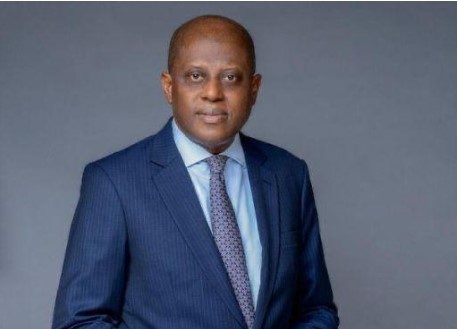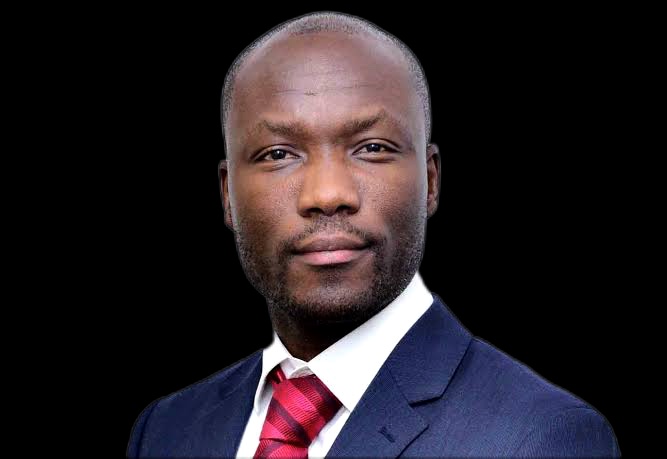By Joseph Ekeng
In the wake of the Bola Ahmed Tinubu administration, the Central Bank of Nigeria (CBN) has undergone a whirlwind of changes and controversies. From the suspension of the former CBN chief, Mr. Godwin Emefiele, to the interim leadership of Mr. Folashodun Shonubi and investigations into the bank’s previous management, the CBN has been a focal point of public interest. With the appointment of Dr. Michael Olayemi Cardoso as the new CBN Governor, awaiting Senate ratification, the nation anticipates a period of stability in the bank’s management structure.
Dr. Cardoso brings a wealth of experience to the role, having served as the former chairman of Citibank Nigeria for over 30 years. His impressive career also includes board memberships in Nigerian subsidiaries of Texaco and Chevron and chairing the EFInA committee.
Furthermore, his past role as Commissioner for Economic Planning and Budget under Governor Tinubu’s Lagos state administration underscores his expertise in fiscal policy, although it diverges from the typical mandate of the CBN, which primarily oversees monetary policy and microeconomic matters.
Dr. Cardoso’s extensive experience in the banking sector has earned him respect and recognition. However, his journey to the helm of the CBN is not without its controversies. Concerns arise due to Cardoso’s long-standing relationship with Tinubu, raising questions about potential partisanship. His prior appointments under Tinubu’s leadership, including Commissioner for Budget and Economic Planning in 1999, and rumoured consideration for Vice President in 2015, have raised questions in some quarters about his capacity to be independent.
The issue of partisanship is critical, given the previous governor’s perceived alignment with political interests. In 2022, Godwin Emefiele hinted at a presidential run under the APC, raising concerns about the CBN’s independence. Cardoso must tread carefully to avoid similar perceptions, especially as the CBN’s decisions significantly impact the nation’s economy.
One pressing issue is the CBN’s significant lending to the government, with N23.72 trillion extended over the past seven years, a staggering 2900% increase. These “ways and means” loans have inflated Nigeria’s debt portfolio. The challenge for Cardoso is to manage this debt responsibly, especially considering the proposal to convert it into a 40-year bond with a 9% interest rate. The decision he makes on this matter will have profound implications for Nigeria’s fiscal health.
Cardoso’s first major test lies in the upcoming Monetary Policy Committee (MPC) meeting, where he must decide on interest rates. Nigeria has raised rates eight times consecutively to combat rising inflation, now at an 18-year high. Balancing economic stability and growth is a daunting task. If Cardoso chooses to continue the trend of raising interest rates, it could further slow down economic activity. Conversely, reducing rates too quickly might exacerbate inflationary pressures. Striking the right balance will be a significant challenge.
Stabilizing the Naira in the forex market is another formidable challenge. The currency plummeted during Emefiele’s tenure, and the gap between official and black market rates widened. Cardoso must devise strategies to boost the Naira’s value, a critical factor in attracting foreign investment. He will need to address questions about exchange rate policies and consider the implications for importers, exporters, and ordinary citizens.
Clearing the backlog of over $10 billion in forex requests is imperative, as the Financial Times Stock Exchange (FTSE) has downgraded Nigeria’s rating. Cardoso must address this issue swiftly to stabilize the Naira and regain investor confidence. This involves not only addressing the backlog but also creating a framework for maintaining a stable forex market in the long term.
Cardoso will also need to revamp projects initiated by his predecessor. The e-naira, launched in 2021, has struggled to gain adoption. Its slow uptake raises questions about its effectiveness and the public’s trust in digital currency. Cardoso must assess the e-naira’s current state and explore ways to make it more appealing to both businesses and the public.
Additionally, the CBN’s efforts to support food production need improvements to yield results. Emefiele’s tenure saw the central bank venture into financing food production as part of its broader economic agenda. However, the impact of these initiatives has been limited. Cardoso should consider reviewing these programs and exploring new strategies to boost food security and reduce import dependence.
Perhaps Cardoso’s most daunting task is redefining boundaries that Emefiele blurred. Regaining the CBN’s independence and refocusing on its core mandate of leading monetary policy is imperative for economic stability. Over the years, the CBN has been drawn into various roles, including financing government projects and managing the Naira’s exchange rate. While these actions may have been necessary in the short term, they have eroded the central bank’s autonomy.
Redefining these boundaries will require careful planning and effective communication. Cardoso will need to work with government officials and stakeholders to clarify the CBN’s role in the broader economic landscape. This process will likely involve making tough decisions about the central bank’s involvement in government financing and its approach to monetary policy.
Another aspect of the economy responsible for the seeming crisis in the economy is the alleged political interference in the foreign exchange management. If this is the true position, it poses a significant challenge for Cardoso. The demands on the foreign exchange market are not likely to ease anytime soon. However, Nigerians expect him to step on toes, including sensitive ones, in the management of the nation’s dwindling foreign reserve. Balancing the needs of the majority with the interests of a powerful minority will require skillful diplomacy and tough decision-making.
In conclusion, as Nigeria’s new CBN Governor, Dr. Michael Olayemi Cardoso faces a multitude of challenges. His success will depend on his ability to navigate political waters, manage the economy, and prioritize the CBN’s independence while addressing pressing economic concerns. Nigerians eagerly await the actions of their new central banker, hopeful for a brighter economic future. Dr. Cardoso’s journey is fraught with complexities, but his experience and expertise make him a key figure in Nigeria’s economic landscape, and his decisions will shape the nation’s financial future for years to come.





Comment
No comments found.